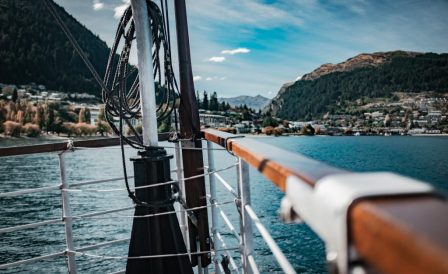Valeriy moved to New Zealand with his son. Initially, he planned studying on language courses for 6 months and job hunting at the same time in order to get a chance to stay in the country and obtain a work visa. Unfortunately or fortunately, he came back to Russia and is sharing his story with us. The story about studying, job searching, applying for work visa and his experience with an immigration adviser.
Content:
- Foreword
- Immigration plan and choosing a study program
- Visa processing
- Arrival to New Zealand
- Living with a Kiwi family
- Language courses
- Studying achievements
- Part-time work
- Expenses in Auckland
- Kiwi Education events
- Conclusion
Foreword
Over two years ago, while lying on the beach of Koh Chang island under the warm Thai sun, my wife and I were reminiscing about how we had once dreamed of going to Australia. When we got back home, we started researching online and stumbled upon neighboring New Zealand was a country we knew almost nothing about. We began reading blogs by travelers, students, and people who had recently moved or lived there long-term.
We were instantly drawn to the country. What impressed us the most was the nature, its beauty and grandeur. And we began exploring possible ways to move to New Zealand. That’s when we came across Denis Vlasin’s story and discovered his agency, Kiwi Education.

Auckland, New Zealand
The Migration Plan and Choosing a Study Program
We filled out a form on the Kiwi Education website, and soon after began working with our consultant, Elena Turunkina. Our initial plan looked like this:
- Enroll in an engineering program
- Look for a job
- Get a job offer and apply for a work visa
To get into a diploma program, I needed an IELTS Academic score of at least 6.0. I remembered my first two attempts at the exam where I scored 4.5, so I knew this would be a challenge. Despite improving my reading and writing a bit, it still wasn’t enough to meet the requirement — I needed a serious boost. And what could be better than enrolling in English language courses and fully immersing myself in an English-speaking environment?
We decided that I would go to New Zealand first with our eldest son. If everything went well, my wife and daughter would join us later. We settled on a six-month English course — more than enough time to improve our language skills, get a feel for the country, and decide what to do next. The plan was to assess my job prospects and the chance of getting a work visa, or consider pursuing a second engineering degree. Another option was for my son to begin his studies in a field that is in demand in New Zealand (his first university degree).
Elena found a great deal for us at Abacus Institute of Studies in Auckland. It was a 24-week program for NZ$3,720. It’s a Category 1 school, which meant I was allowed to work up to 20 hours per week. That helped us support our budget, adapt faster, and expand our social and professional network.
Visa processing
We quickly gathered the required documents, got them translated, made the necessary payments, and submitted my student visa application. The result was stunning — I received my visa in just 3 days. Then we submitted the documents for my eldest son. His visa took a bit longer, but he was granted a limited student visa that also allowed 20 hours of work per week. However, it required him to leave the country once the visa expired, and he could only apply for a new one from abroad.
Arrival to New Zealand
We bought our tickets from Russia on the S7 Airlines website — 33,000 rubles per person, one way. We flew from Irkutsk to Hong Kong with S7 and then from Hong Kong to Auckland with Cathay Pacific.

New Zealand greeted us with pouring rain. After landing, we passed through passport control and answered various questions about our reasons for coming, where we’d be studying, living, etc. We showed printouts of our visas and the institute’s invitation letter. Then we went through customs.
We had filled out our declaration forms during the flight. After scanning our bags, a sniffer dog gave them a thorough check. An officer asked if we had any citrus fruits or other prohibited foods. Aware of the NZ$400 fine, we left all remaining food on the plane.
Living with a Kiwi Family
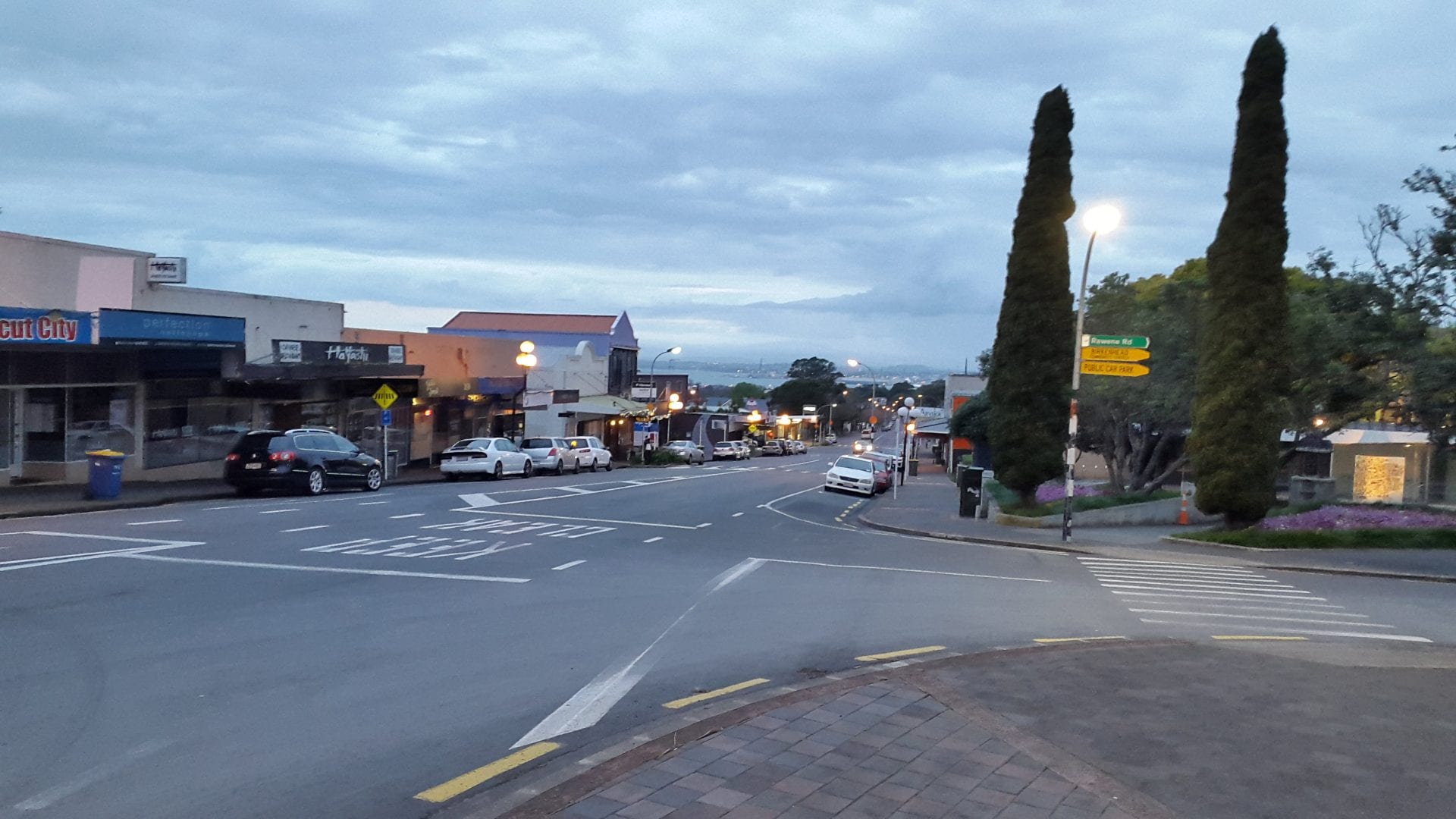
Birkenhead area on North Shore, Auckland
We booked our accommodation through Airbnb — we had used it before and preferred it over Booking or Agoda. We chose Birkenhead, a nice neighborhood on the North Shore, due to its convenient transport links to the city center (CBD). We rented a room for NZ$325 per week on the first floor of a two-story house, living with a Kiwi family. Our goal was to have daily conversations with native speakers, and we weren’t disappointed.

The family — a couple in their 50s and two teenage daughters — turned out to be very friendly and welcoming. They helped us adapt, gave us loads of useful tips, and even took us grocery shopping in their car. They’d been hosting guests from all over the world for years and were curious to finally meet people from faraway, vast Russia.
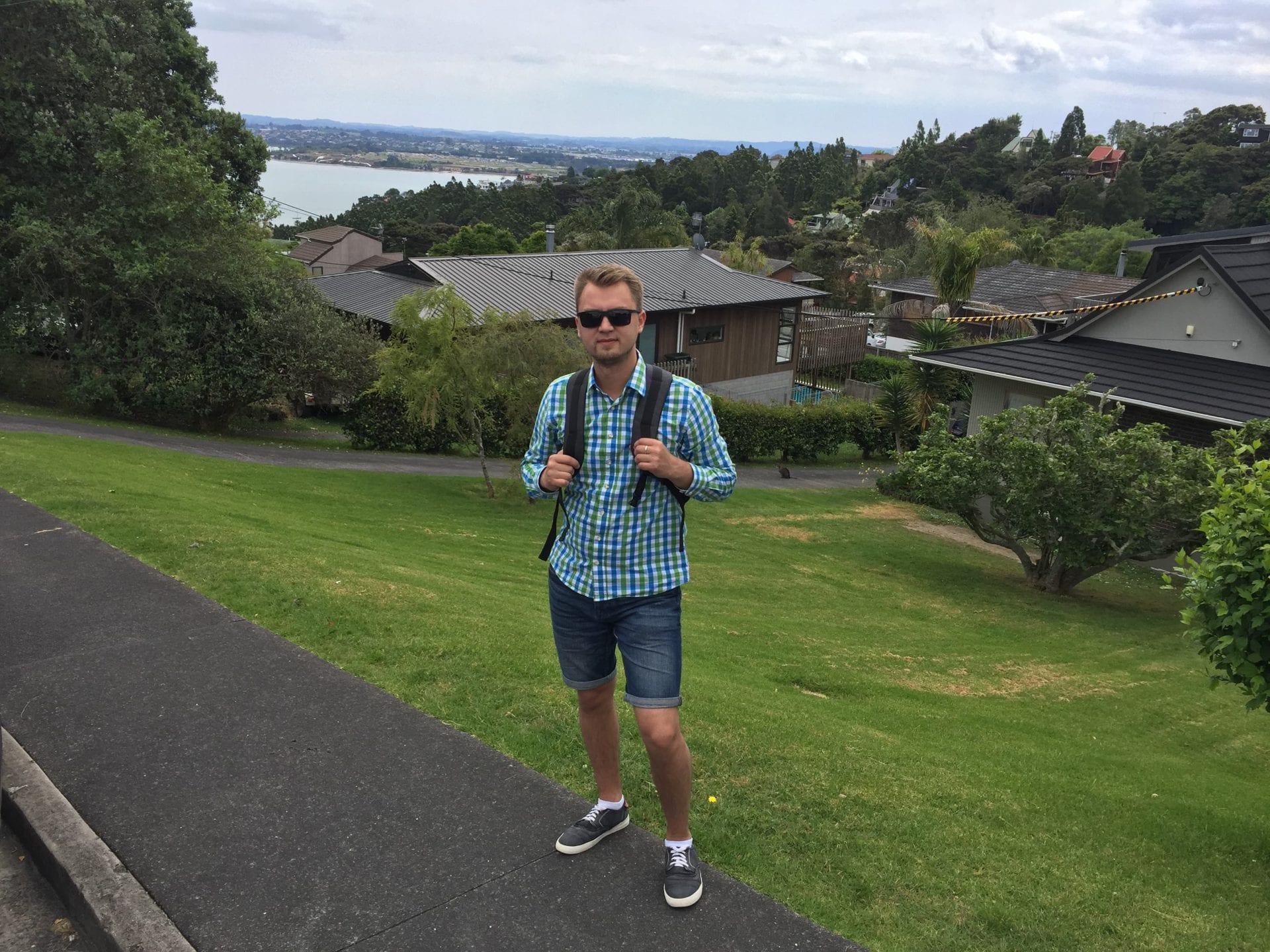
The Only Downside – Cold Houses.
We stayed with them for two and a half months, during which we got to experience just how cold and damp New Zealand homes can be in winter. On our first morning, I saw the cover of my passport curled up from moisture, and the window glass was covered in condensation. Inside the house, we wore sweatpants, hoodies, and warm socks all the time.
We kept the room well-ventilated, warmed up in the sun outside, and at night slept under two blankets or with a heater on. The house was new and well-built — but insulation doesn’t seem to be a priority in New Zealand.

Language Courses
We went to the institute the day after we arrived in Auckland. It was located right in the city center on Queen Street, across from Aotea Square. We registered, took a placement test, and I was placed in Level 3, while my son was placed in Level 1.

Auckland, CBD
Schedule
Classes ran from Monday to Friday, 9:00 a.m. to 1:00 p.m., with a 20-minute break. There were four groups in total: two beginner levels, one intermediate, and one advanced. Each class had about 20–25 students. At one point, there weren’t even enough seats for latecomers in my class.
Students
The groups were extremely diverse, with students from all over the world: the Philippines, Vietnam, Japan, Argentina, Colombia, Chile, Saudi Arabia, the UAE, and Pakistan. There were many students from Brazil, China, and India. And surprisingly, a lot of young people from Ukraine, Kazakhstan, and Russia.

Our English class group
Everyone came from different cultures, backgrounds, habits, ages, and social statuses — it was truly fascinating to observe and interact with such a variety of people. I remember two 16-year-old twin brothers from Chile who had saved up for their English course and flights to New Zealand by working. Here, they worked nights in a restaurant and slept during class. Next to them were a Chinese millionaire and wealthy young Arabs arriving at school in Jaguars and Porsches.
But the person who stood out the most was a woman over seventy years old, originally from Russia. She had lived in Argentina with her children for many years and had come to New Zealand to be with them — and she was diligently learning this new language. A living reminder that it’s never too late to learn.

Our English class group
In my time at Abacus, the most dedicated students when it came to learning English were, in my opinion, those from China, Russia, and Ukraine—especially the women. On the other hand, many Indian students arrived with decent spoken English but weak grammar and weren’t particularly focused on learning. They mainly attended to maintain a high attendance rate, which is essential for applying for the next visa. Some of them had already been living in New Zealand for several years this way.
Teachers
The teaching staff at Abacus was just as international as the student body. Coming from England, China, Uruguay, Russia, and New Zealand. And they changed quite frequently. Over the course of three months, I had four different teachers in my group. The quality of teaching varied significantly and depended entirely on the individual instructor. To get real results, you had to study hard in class, do your homework, pass all tests, and most importantly — practice speaking English constantly. At school, with friends, in public, in shops, on public transport, and at work.
Learning Progress
Over six months, my English improved significantly, although not as much as I had hoped. Ideally, one should avoid speaking their native language as much as possible—but that was not realistic for me. My son was with me, my friends spoke Russian, and all of my part-time jobs were with Russian-speaking employers.
My son also made good progress. He started speaking. It was easier for him than for me, as he spent entire days communicating with classmates aged 25–30. While their English levels weren’t high, they weren’t shy, and they managed to understand each other just fine.
Part-time work in New Zealand
From the very beginning in Auckland, we started looking for job opportunities. The main issue was that we could only work after lunch, once classes were over. My son worked one night as a waiter at a restaurant in the city center, but they never called him back. We applied for many jobs through the Student Job Search website, but were rejected every time.
Eventually, friends began sharing contacts for short-term jobs with Russian-speaking employers in construction and private work. We did all kinds of things. Such as trimming bushes and lawns, removing waste, digging trenches, moving furniture and belongings, etc. Wages ranged from NZ$16 to NZ$25 per hour. It wasn’t easy money, and it wasn’t much, but it was incredibly important for us. Just the feeling of earning in a foreign country gave us strength and confidence. An extra NZ$500–1000 per month made a big difference.
Facebook also helped a lot. One day I saw a post about a driver position in a Russian-speaking company. I called—and got lucky. I quickly switched to an evening English class and started working. For three months, I went out 3–4 times a week with a colleague to the areas between Auckland and Hamilton, delivering and setting up equipment. For 20 hours a week, I was paid NZ$400, which covered housing and left some for expenses.
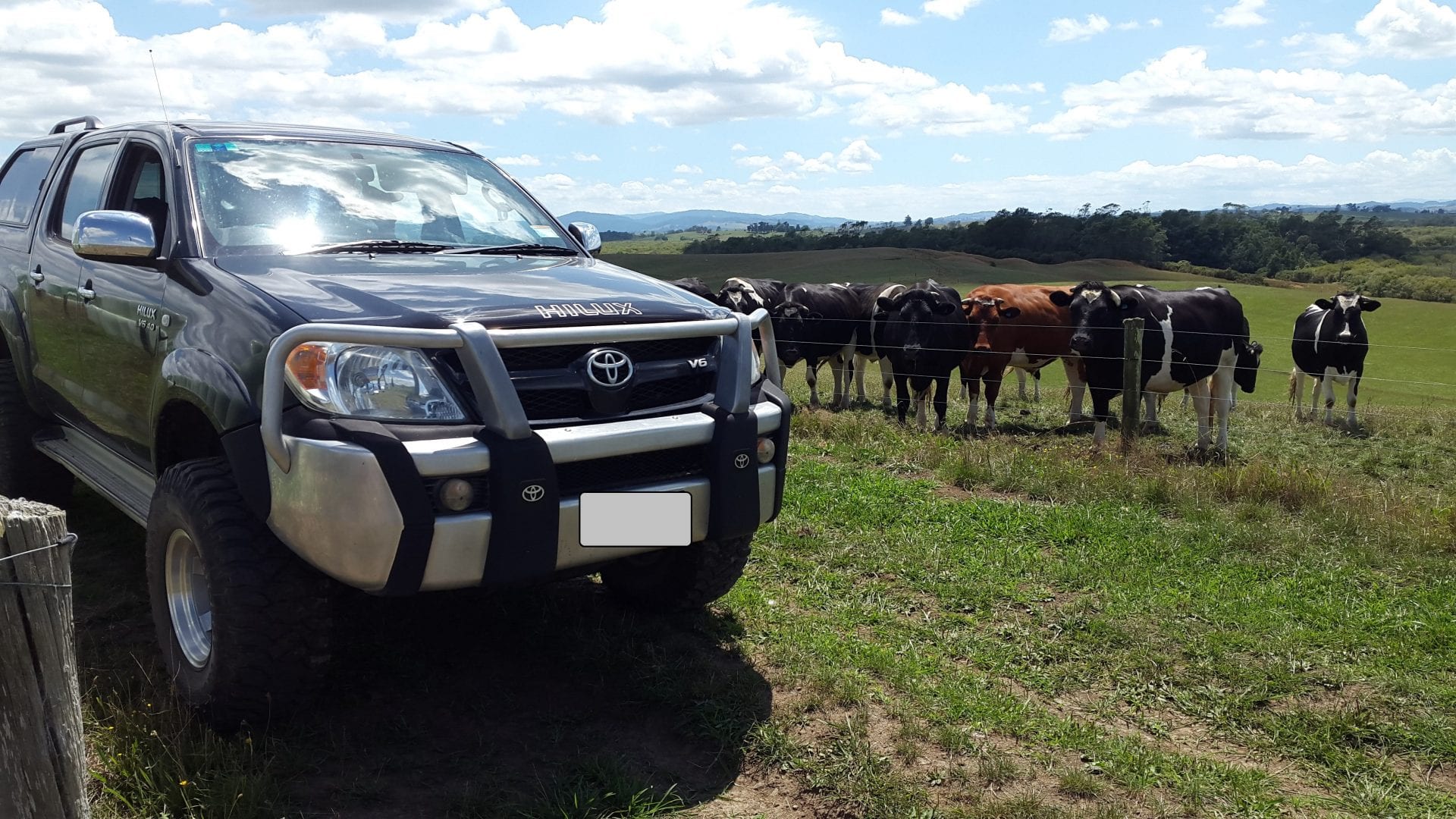
Expenses in Auckland
Before arriving, we researched the average cost of living in Auckland and set a target of NZ$650 per week for two people. That included:
- NZ$350 for rent
- NZ$200 for food
- NZ$100 for transportation
- NZ$40/month for phone service
In reality, we spent even less. Over six months, we spent NZ$18,500. During that time, we rented cars and traveled around the island. I even got to try surfing and diving.
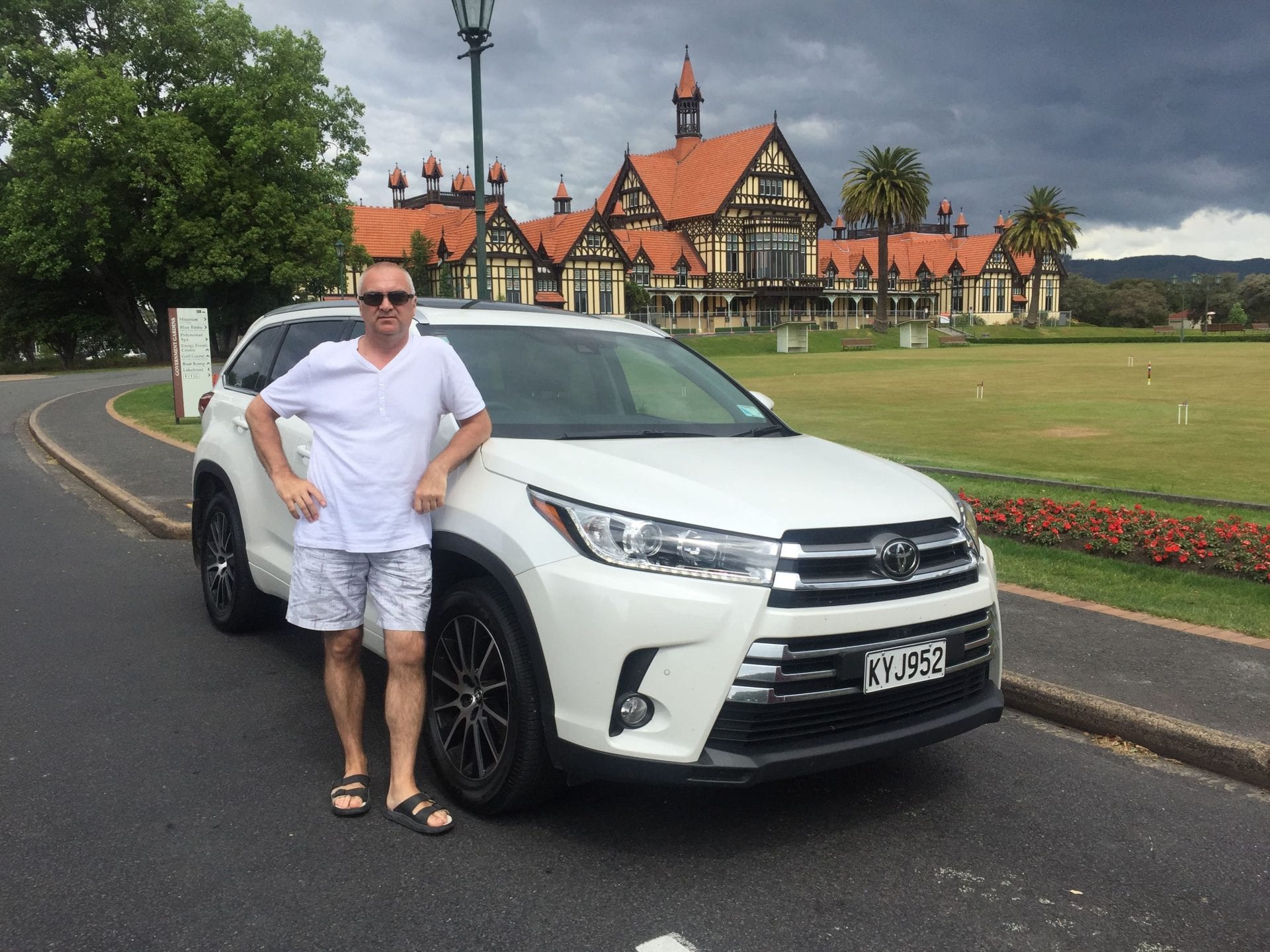
Kiwi Education Events in New Zealand
Throughout our studies and adaptation period, I had many questions, and naturally, I turned to Kiwi Education for help. I stayed in touch via email with Elena Turunkina, and even with their busy schedules, Ekaterina Kornilova and Denis Vlasin always made time for a phone call or a visit to the office on in Auckland

Ekaterina Kornilova Kiwi Support
What I appreciated most was how Kiwi Education never forgets their current or former students. They regularly organize community picnics in various parts of Auckland. We attended two of them during our studies. The first was in the beautiful Cornwall Park.

Blogget Natalia NZ, Me, Denis Vlasin

Our manager Elena
The second picnic was held in Orakei Domain, where I had the chance to meet the entire Kiwi Education team, who gathered together in New Zealand for the first time.
The picnics were casual and relaxed. Students, graduates from English and diploma programs, and families with kids all came. There were fun competitions, games for children, and lots of socializing, information-sharing, and advice. No one was left out.

Conclusion
Toward the end of the language course, I realized I wasn’t able to find a job in my field of transportation. We decided not to enroll in Level 7–8 programs and return home. However, I had previous experience in construction, so I chose to apply for a work visa in that field. I received a Job Offer from a Russian-speaking construction company and, on their recommendation, contacted a Russian-speaking licensed immigration adviser. We signed a contract, I submitted all the required documents, made the payment, and flew back home with my son to wait for the visa.
That turned out to be a huge mistake. I should’ve stayed in New Zealand. I later realized the adviser wasn’t really interested in helping me get the visa. Issues came up that could’ve been resolved, but weren’t. As a result, my visa was declined. Later, I found out that this adviser had let down many applicants. If Kiwi Education had already launched their own Kiwi Immigration branch at the time, I believe the outcome would have been very different.
It’s been over a year since I left New Zealand, but I still think about it every day. It doesn’t let go. My wife and I are determined to return someday. Once you’ve been there, you’re changed forever.
If you dream of studying, living, or working in New Zealand — follow your dream. Take that first step, regardless of age, money, or other challenges—most of which, honestly, we invent ourselves. Dreams come true when you chase them.




